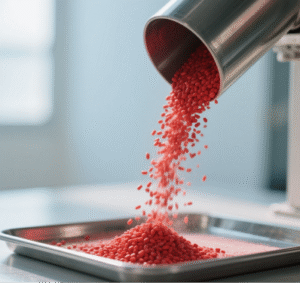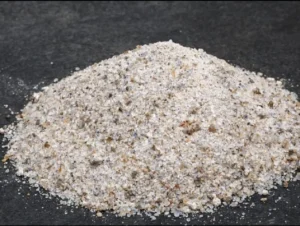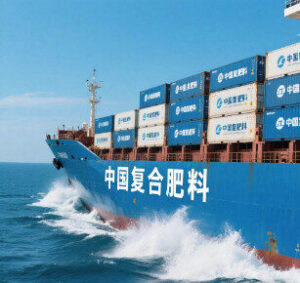In Brazil, companies importing or manufacturing fertilizers must register with the Ministry of Agriculture, Livestock and Supply (MAPA) and comply with specific regulations regarding product composition, analytical reports, labeling, and packaging. Additionally, Brazil has recently implemented a National Fertilizer Plan to reduce import dependency and boost domestic production, with emphasis on sustainability and new technologies.
1. Legislative Framework & Oversight Bodies
Brazil’s fertilizer sector operates under the regulatory authority of the Ministry of Agriculture, Livestock and Supply (MAPA). The framework integrates multiple legislative instruments:
-
Decree 4,954/2004: Core fertilizer regulations
-
Bioinputs Law (14,785/2023): Governs biological agricultural inputs
-
GHS Implementation (NBR 14725): Chemical classification and labeling standards
-
National Fertilizer Plan (2021-2050): Strategic roadmap for import reduction and sustainable production
2. Establishment Registration Requirements
Companies must obtain dual registrations before market entry:
| Registration Type | Requirements | Validity | Key Documentation |
|---|---|---|---|
| Company Registration | • Valid CNPJ tax ID • MAPA-approved physical infrastructure • Appointment of technical manager (Agronomist/Chemist) • Operational capacity documentation |
5 years (renewable) | • Business licenses • Facility blueprints • Manager credentials |
| Product Registration | • Detailed chemical composition • Laboratory analysis reports • Technical data sheets • Proposed labeling |
5 years (renewable) | • Safety data sheets (SDS) • Efficacy studies • Manufacturing process details |
3. Product Classification & Technical Specifications
MAPA categorizes fertilizers based on composition:
| Fertilizer Category | Definition | Special Requirements |
|---|---|---|
| Mineral Fertilizers | Inorganic compounds with primary nutrients | Heavy metal limits (Cd, Pb, As) |
| Organic Fertilizers | >85% organic matter (plant/animal origin) | Pathogen testing (Salmonella, E.coli) |
| Organomineral Fertilizers | Blends of organic + mineral components | Ratio documentation (min: 25% organic) |
| Bioinputs | Biological agents covered by Law 14,785 | Viability studies, contamination controls |
4. Mandatory Labeling Requirements (GHS-Aligned)
All packaging must display:
-
Product Trade Name and MAPA registration number
-
Guaranteed Nutrient Analysis (NPK + secondary/micronutrients)
-
GHS Pictograms and hazard statements
-
Application Instructions and safety precautions
-
Manufacturer/Importer Details with contact information
-
Batch Number and manufacturing date
Special Requirement: Organic/organomineral fertilizers must declare organic matter percentage and carbon/nitrogen ratio.
5. Import-Specific Compliance Procedures
Step 1: Pre-Shipment Documentation
-
MAPA-issued Import License (LI) via SISCOMEX
-
Certificate of Analysis from origin country
-
Commercial invoice with HS code 3101-3105
Step 2: Border Control
-
Mandatory MAPA inspection at port of entry
-
Verification against registered specifications
-
Sampling for laboratory validation (15-30 days)
Step 3: Post-Clearance Obligations
-
Quarterly production/sales reports to MAPA
-
Storage facility audits (clean, dry, segregated areas)
-
Adverse event reporting within 72 hours
6. National Fertilizer Plan (2021-2050) Implications
Recent regulatory shifts prioritize:
-
Import Dependency Reduction: Tax incentives for domestic production
-
Sustainable Production: 30% increase in organic fertilizer registrations
-
Technological Innovation: Fast-track registration for nano-enhanced and slow-release fertilizers
-
Circular Economy: Integration of agricultural waste in fertilizer production
7. Bioinputs Law (14,785/2023) Compliance
Effective December 2024, biological fertilizers require:
-
Simplified Registration Process: 60-day approval timeline
-
Reduced Fees: 50% cost reduction for SMEs
-
Efficacy Thresholds: Minimum 80% target organism control
-
Contamination Controls: <1% non-target microorganisms
8. Industry Support Ecosystem
-
ANDA (National Fertilizer Association): Technical guidance and best practices
-
Certification Bodies: INMETRO-accredited laboratories
-
Regulatory Consultants: MAPA-authorized firms for registration support
9. Penalties for Non-Compliance
-
Level 1: Fines up to R$500,000 (≈USD 90,000)
-
Level 2: Product seizure and import suspension
-
Level 3: Establishment registration cancellation
Compliance with Brazil’s evolving fertilizer regulations requires proactive monitoring of MAPA ordinances, particularly regarding organic waste utilization thresholds and biological product specifications. Foreign manufacturers should partner with local entities for establishment registration and maintain rigorous batch documentation throughout the product lifecycle.







